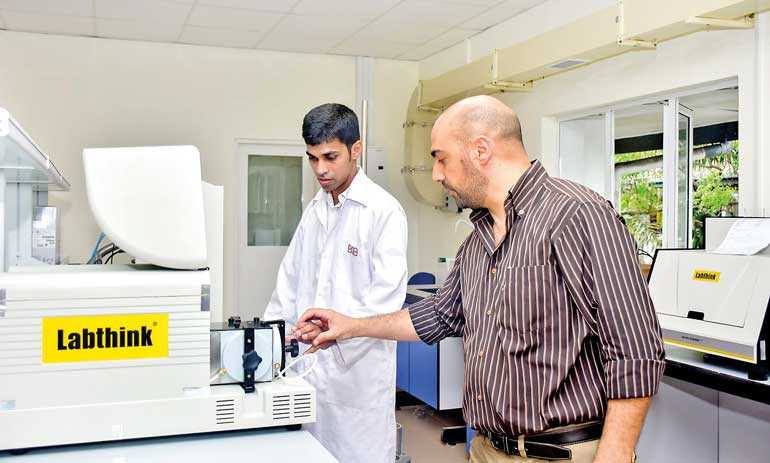Monday Feb 23, 2026
Monday Feb 23, 2026
Thursday, 8 August 2019 01:17 - - {{hitsCtrl.values.hits}}


Consumer demand for durable and sustainable packaging is growing in Sri Lanka’s export-oriented sectors. Packaging testing services play an essential role in ensuring product integrity over the journey of products destined for exports. The United Nations Industrial Development Organization (UNIDO), within the framework of the European Union (EU) funded EU-Sri Lanka Trade Related Assistance project, is enhancing the value chain performance of small and medium-sized enterprises (SME), particularly those in the food and spice sectors, which depend on conformity assessment bodies for the design and testing of packaging materials.
In 2018, UNIDO conducted a demand and supply analysis of the conformity assessment services market in Sri Lanka to determine the capacity constraints and gaps that would need to be addressed to adequately service the food and spice sectors. UNIDO selected 24 conformity assessment bodies for bespoke technical assistance towards various accreditation needs.
Towards the end of 2018, the Industrial Technology Institute (ITI) was designated as Sri Lanka’s national packaging testing centre as it was determined to have existing and absorptive capacity to host such services and had basic equipment and facilities for packaging testing. To strengthen capacity on performance testing, testing procedures, and physical testing towards ISO/IEC 17025:2017, a work plan was established with UNIDO’s guidance and the required equipment were procured. ISO/IEC 17025:2017 is a standard that specifies the general requirements for the competence, impartiality, and consistent operation of laboratories.
UNIDO conducted trainings for ITI laboratory technicians on 1, 2 and 5 August on procured equipment that would be used to conduct testing on the performance of packaging materials and on international testing protocols, such as ASTM testing standards, to improve ITI’s testing capabilities to prepare to face an accreditation audit with the Sri Lanka Accreditation Board.
Once accredited, ITI would be able to offer a wide array of services to exporters. By taking advantage of these services, producers will have minimised production costs, reduced time spent on damage claims, cut product loss, and increased credibility and professionalism with buyers. Many of these tests have to be conducted overseas, adding an additional cost burden on manufacturers. Once the national packaging testing centre is launched, 12 physical and mechanical tests would be offered locally.
From 23 July to 9 August, UNIDO has also trained 294 representatives from SMEs and 94 extension officers of trade support institutions across six cities on new trends in packaging technology, labelling requirements, testing requirements for export, and services available at ITI. Awareness-raising on the need and availability of packaging testing services at ITI would enable Sri Lankan SMEs to best anticipate product performance and guarantee customer satisfaction in compliance with regulatory requirements of quality-conscious export markets like the European Union.